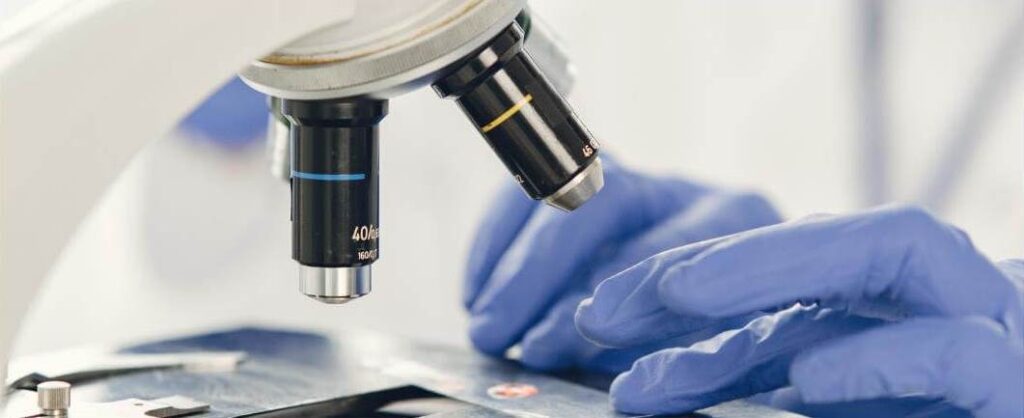Advanced diagnostics and personalized treatment
Cancer treatment is becoming increasingly precise and effective, thanks to the latest scientific advances in diagnostics and therapy. One of the key steps towards successful cancer treatment is cancer sensitivity tests, which provide important information about which drugs and chemotherapy will be most effective without causing unnecessary harm to the body. These tests allow doctors to accurately determine the nature of the cancer, its degree of aggressiveness and its response to various types of treatment.

1. Cancer Sensitivity Test: What is it?
A cancer sensitivity test is a diagnostic method that is performed in laboratory conditions and its purpose is
to determine which medications will be most suitable and effective in fighting cancer in a given situation.
The test helps to determine and adjust the treatments and therapies that are most suitable for a particular patient, thus improving the effectiveness of treatment. Cancer cell sensitivity tests also help to reduce the risk of unwanted side effects, as the treatment plan allows you to avoid ineffective treatment methods.
Such personalized treatment is important to ensure the best treatment results and help patients fight cancer more effectively. The test provides an accurate treatment plan, based on the patient’s health condition, reducing the risks of side effects and improving the patient’s immune system, well-being and general health, as well as the opportunity to fight cancer cells more effectively in the patient’s body without losing time.
2. Circulating Tumor Cell Detection
The circulating tumor cell (CTC) test is an important tool in oncology, as it provides information on the development, progression, and effectiveness of cancer treatment. These cells are tumor cells that have broken away from the primary tumor or metastatic foci and entered the bloodstream.
The main reasons why a CTC test is needed:
- Early diagnosis and disease monitoring
- The CTC test can help detect cancer at an early stage or before metastasis.
- Suitable for monitoring disease progression, especially in patients with a high risk of recurrence.
- Metastatic cancer prognosis
- A high CTC level often correlates with a worse prognosis, as it indicates the possible formation of metastases.
- A low or reduced CTC count during treatment indicates the effectiveness of the therapy.
- Treatment effectiveness assessment
- The CTC test can help determine whether the selected therapy (chemotherapy, immunotherapy, targeted therapy) is effective.
- By comparing CTC levels before and after treatment, it can be assessed whether the therapy should be continued or changed.
- Precision medicine and personalized approach
- CTCs can be analyzed genetically and molecularly to identify specific mutations or biomarkers.
- This allows the treatment strategy to be tailored to a specific patient.
3. Chemotherapy Sensitivity Tests
Chemotherapy is one of the most commonly used methods in cancer treatment, but it is not always suitable for all types of cancer. Each tumor is unique, and different types of cancer may have a different response to chemotherapy, so treatment must be tailored to each patient individually. Cancer sensitivity tests help doctors find out how specific tumor cells respond to chemotherapy and various drugs, allowing them to choose the most effective and safest treatments for a specific patient.
However, these tests are not only about evaluating chemotherapy, but also about how to choose the most suitable preparations – drugs that are most effective and sensitive to cancer cells. This allows patients to avoid ineffective chemotherapies without causing unnecessary harm to the body.
It is also important to mention that today, integrative medicine is increasingly used in cancer treatment, which complements traditional treatment methods with natural therapies. The goal of integrative medicine is to strengthen the body and immune system, improving the body’s ability to fight the disease. Therapies such as intravenous infusions and injections, local or whole-body hyperthermia, or fever therapy, activate biological responses that enhance immune function and allow the immune system to better recognize and destroy cancer cells. During hyperthermia, so-called heat shock proteins are formed, which make tumor cells more easily recognizable by the immune system. This method is especially effective in combination with other therapies, such as radiation therapy, chemotherapy, enhancing their effects.
Natural remedies, such as vitamin C, boswellia, artesunate, melatonin, curcumin, and many others, can also help fight cancer by destroying cancer cells, reducing inflammation, strengthening the immune system, and improving overall health. These preparations help reduce the side effects associated with traditional therapies.
How do cancer sensitivity tests help patients?
Cancer sensitivity tests allow doctors to choose the best treatment strategy based on the sensitivity of tumor cells to different drugs. This approach not only increases the effectiveness of therapy, but also reduces the risk of unwanted side effects, ensuring a personalized approach for each patient. Thanks to these tests, treatment becomes much more effective and accurate, showing better treatment results.
📞 For more information and to apply for a consultation: +371 27 337 768
